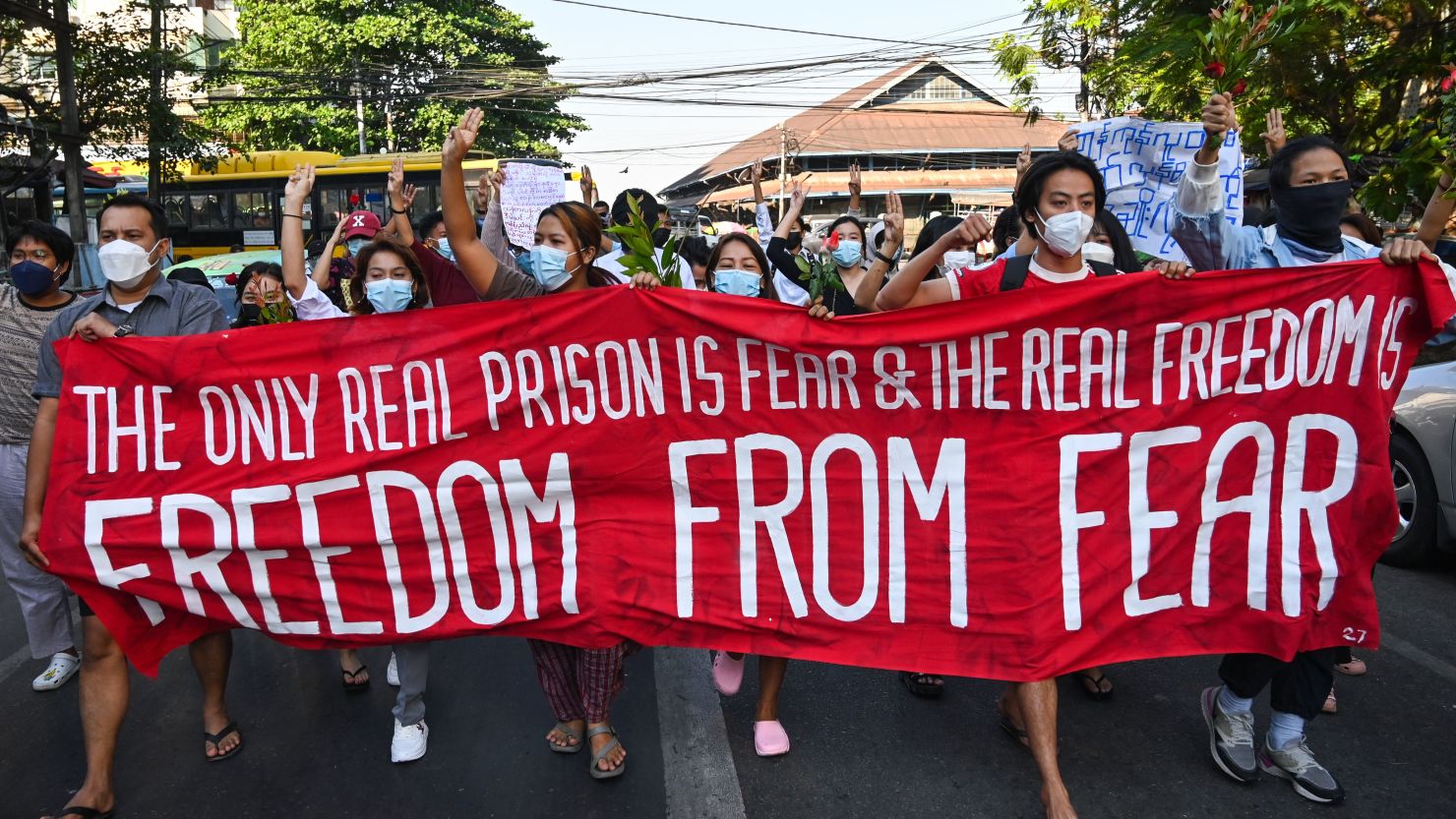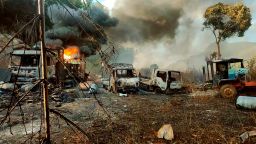After one year of military rule in Myanmar, millions of people are resisting areturn to repression and isolation.
Last February,military leader Min Aung Hlaing seized control of Myanmar in a coup that upturned any hope the country of 55 million people would become a functioning democracy under former leader Aung San Suu Kyi.
After ordering a brutal crackdown on anti-coup protests, the junta chief andself-appointed Prime Minister isattempting to bring an unwilling population under his control, as problems plaguing the country become more acute.
Millions are unemployed, food and fuel prices are surging, poverty is rising, and the country’s education, Covid-hit health care and banking sectors are verging on collapse, raising questions about what the takeover has achieved one year on.
“It is a failed coup,” said Yanghee Lee, co-founder of the Special Advisory Group on Myanmar and former UN special rapporteur for human rights in the country. “The coup has not succeeded in the past year. And that is why they are taking even more drastic measures to finish out the coup.”
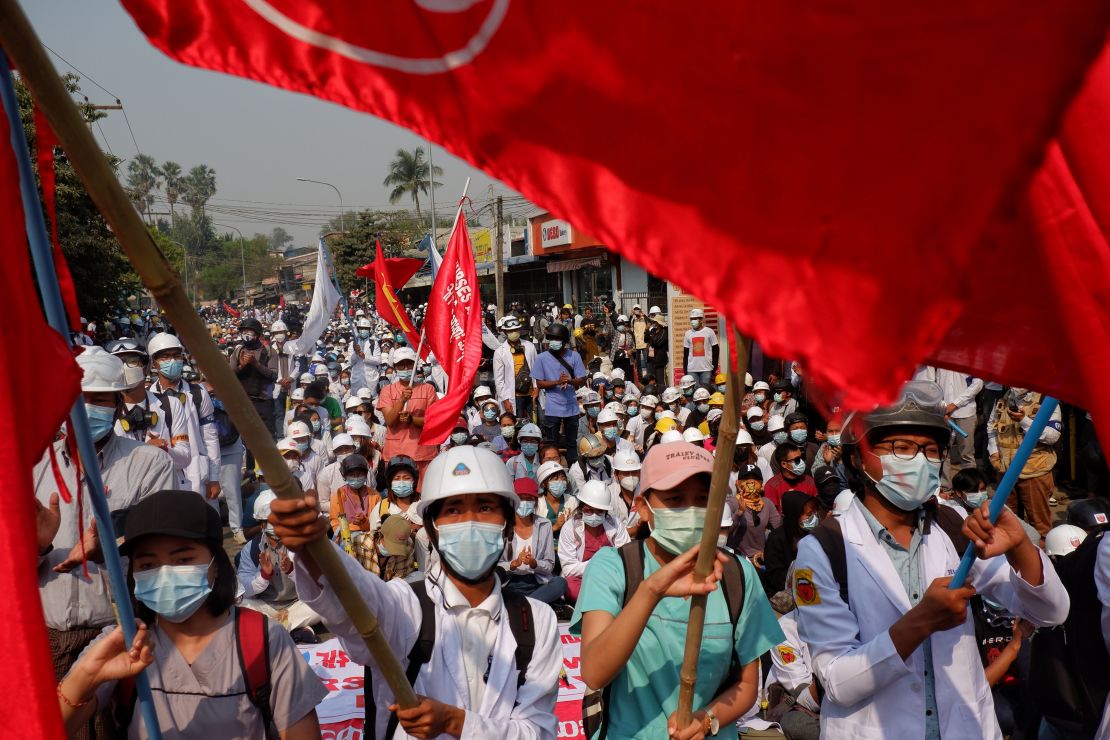
Experts say the junta’s attempts to gain full control are being frustrated by theMyanmar people as they carry out one of the biggest and most unified resistance movements the country has seen in its long history of democratic struggle against military rule.
On Tuesday, a “silent strike” is planned across the country to mark the anniversary, with residents urged to stay indoors and businesses to close their doors. The military has warned it will arrest those who protest under laws such as sedition and terrorism.
The junta says it is fighting terrorists, promising a return to peace, but resistance fighters say the junta is using increasingly brutal tactics to force compliance, suggesting the crisis is set to extend well into its second year.
CNN reached out to Myanmar’s military spokesperson for comment on the allegations of mass killings and war crimes against civilians in this story but did not receive a response.
Military abuses ‘amount to war crimes’
When tanks rolled into the capital, Naypyidaw, on February 1, 2021, many feared violence would follow. But few could have predicted the suffering, death and displacement of the past year.
More than 400,000 people have been displaced in fighting across the country since the coup, according to UN figures – many of them fleeing across borders to India or Thailand, or forced to hide in the jungle.
Atrocities allegedly committed by troops include a massacre on Christmas Eve in Kayah state, also known as Karenni, whereat least 35 bodies were found burned beyond recognition– including two staff members with international aid group Save the Children. Another mass killing was reported in western Chin state in January, where 10 villagers were found, their bodies gagged and blindfolded, according to the Chin Human Rights Organization.
“They are killing, the brutality – there is no rule of law,” said a spokesman for the Karenni Nationalities Defense Force (KNDF), a coalition of armed resistance groups in Kayah state, who didn’t want to be named for safety reasons.
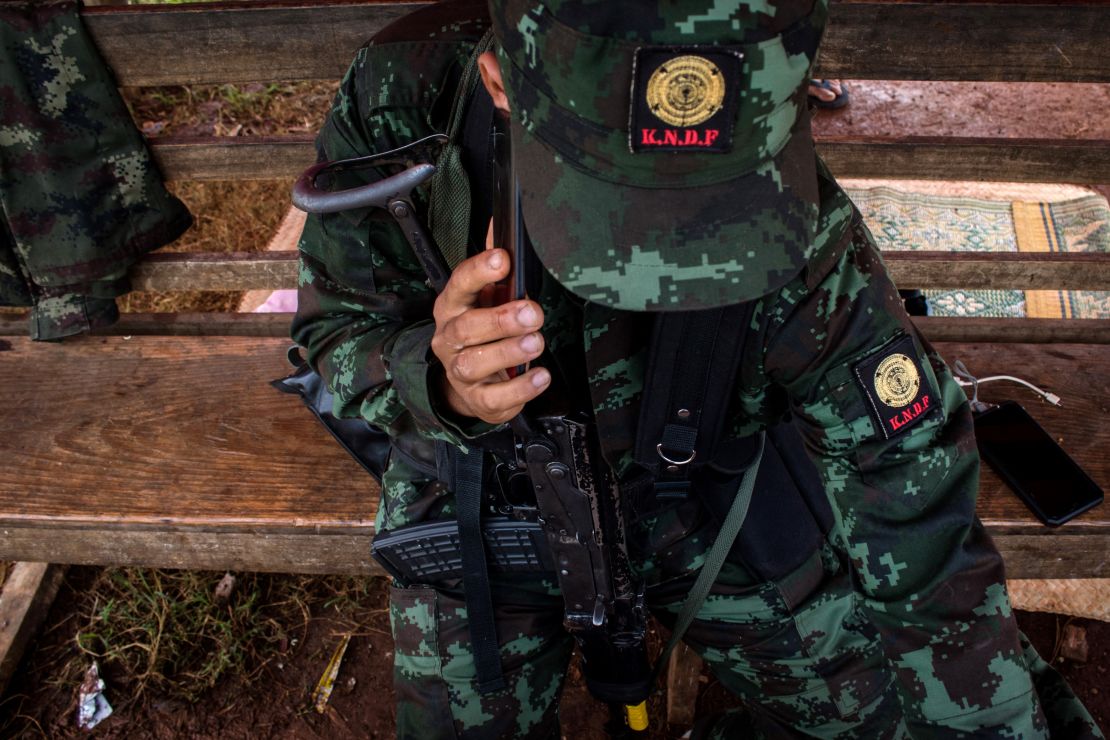
CNN cannot independently verify the incidents.
Hotspot areas have emerged across the country, particularly in Myanmar’s west and south, where local armed resistance groups and ethnic armies are waging battles against the military in a bid to defend their communities.
In mountainousChin state, the town of Thantlang was the site of a months-long offensive by the junta. Over the course of three months from September, the town’s entire population of more than 10,000 people was forced from their homes and at least 800 houses and structures were burnt, the Chin Human Rights Organization said.
The military has repeatedly blamed resistance forces for setting fire to villages and towns – including Thantlang. “Chin terrorist groups had attacked the security forces first and had burned down the town themselves,” the junta said in January.
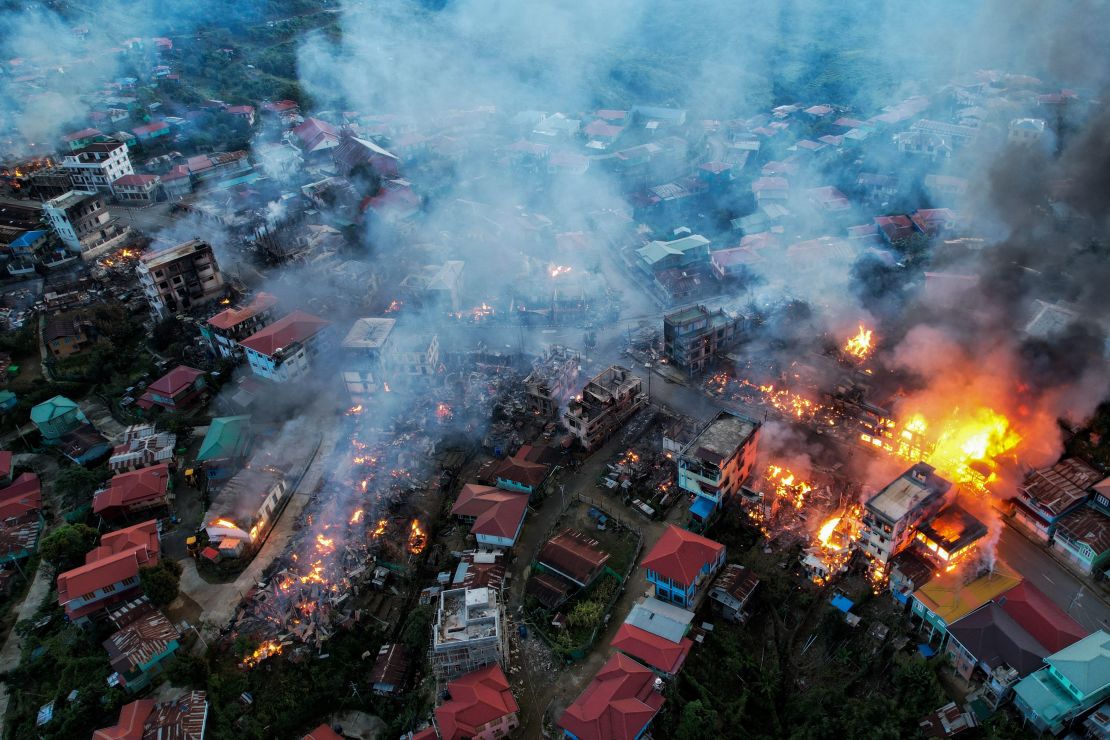
But those in the state say the attacks are part of a scorched earth campaign of violence that the military has long used against ethnic people, most notably the alleged genocide that forced hundreds of thousands of Rohingya to flee Rakhine state in 2016 and 2017.
“They are designed to displace the population, wipe out the area so they have physical control and deprive the resistance of supplies,”said Salai Za Uk Ling, deputy director of the Chin Human Rights Organization.
“It’s really an intentional forced displacement where they are trying to wipe out the population.”
The former UN special rapporteur for human rightsin Myanmar said the military’s actionsin areas such as Kayah, Chin, Kayin (Karen) states and Sagaing and Magway regions amount to “war crimes.”
A stretched military
The military has labeled the resistance forces as “terrorist groups.” In state media,it says it is using “the least force,” is complying with “existing law and international norms” and is committed to establishing peace and holding elections in 2023.
Butwitnesses saythe reality on the ground could not be more different.
Former soldier Kuang Thu Win, 32, defected from his post in December, taking his wife and 2-month-old baby to safety in an undisclosed location. He told CNN he felt “shameful for being a soldier.”
Kuang Thu Win said that once a town or village is labeled as “an enemy,” then everything or everyone in that location is treated as such. “During fighting, they would assume whoever they saw was enemies and shoot them,” he said. And if they took prisoners, he said, soldiers would “give many reasons” to kill them.
“Like the prisoners tried to escape or they tried to grab the guns, that’s why they had to shoot and kill,” he said.
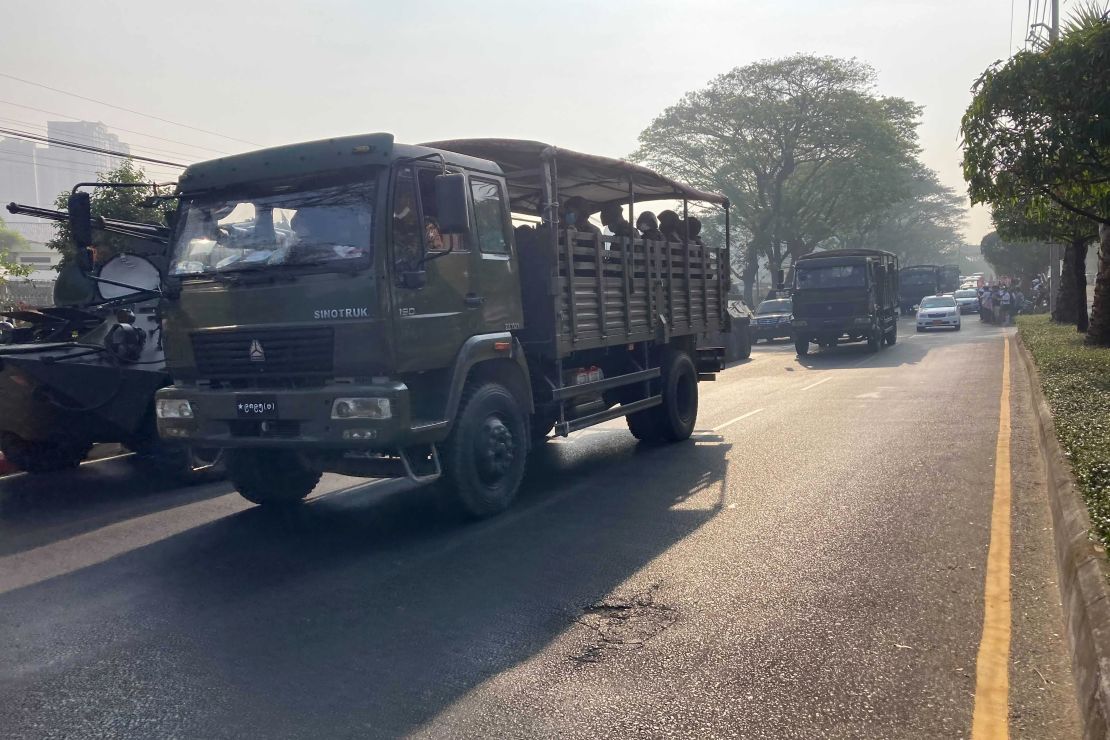
Kuang Thu Win, who served at the Tactical Command Post in the Chin state town of Matupi, said the operations are intended to give the army “control over a region.” Often villages are burned to stop resistance forces from using the houses as a base to attack military troops or as an act of revenge for heavy casualties, he said.
CNN cannot independently verify the incidents.
Far from being a sophisticated force, analysts and those on the ground say the Myanmar military now finds itself stretched and engaging in skirmishes with resistance groups on multiple fronts across the country.
Called People’s Defense Forces (PDFs), many of these armed militia groups formed in the months after the coup and some are aligned with the National Unity Government, a body of ousted lawmakers and ethnic leaders that considers itself the legitimate government of Myanmar.
Local advocacy group Assistance Association for Political Prisoners (AAPP) has documented 1,503 people killed by junta troops since February 1 last year and 11,838 people arrested, with widespread reports of abuse, torture and extrajudicial killings. The junta disputes the figures and it is unclear exactly how many people have been killed in separate clashes between the military and resistance groups.
In many areas, the resistance forces are holding their own despite being outgunned, as they know the local terrain and have stronger relations with the communities.
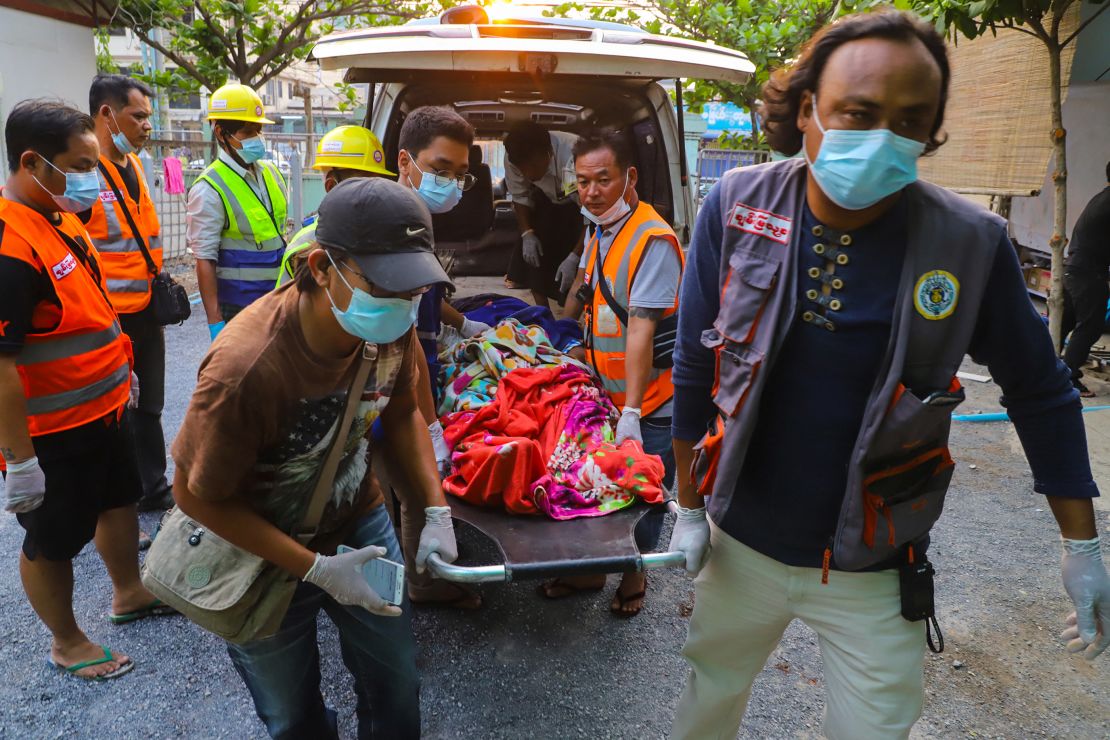
“Recently, at least, there’s definitely been an upsurge in the number of air strikes and attacks by helicopters, which is really one of the main advantages that(the military has) over the PDFs,” said Kim Jolliffe, an independent Myanmar researcher focusing on security, human rights, and ethnic politics.
But Jolliffe said the military attacks are indiscriminate and designed to sow fear.
“That’s basically the only weapon they have on this to win the psychological war,” he said.
Lee, of the Special Advisory Group on Myanmar, is calling for the international community to designate Myanmar’s military as a terrorist group.
“They’re not a national military. And they should be identified and called by their proper name, and that would be an armed group … These are the actions of a terrorist group,” she said.
The resistance movement endures
As the junta attempts to forcibly bring the country under its control, it has inadvertently united many of Myanmar’s diverse groups against it.
The anti-coup resistance – known as the Spring Revolution – has caught the generals off guard by its strength and determination.
Across the country, hundreds of thousands of ordinary people continue to support the Civil Disobedience Movement, which aims to destabilize the junta through economic disruption, mass boycotts of military-affiliated businesses, walkouts, and general strikes.
Many people are donating what little money they have to resistance groups and initiatives, activists say.
Residents have refused to pay their electricity bills as a way to avoid giving money to the junta, underground pirate radio stations are broadcasting anti-coup messages and others have prevented junta officials from taking up posts in local administrations – a major mechanism through which the central government governs the population.
They do this despite the daily risk of arrest, beatings and torture.
“I have never seen this kind of unity in our history,” said Khin Sandar, a Myanmar-based activist. “We believe that we will win this time. We never think we will lose … Whether we die or whether you die, this is our slogan,” she said.
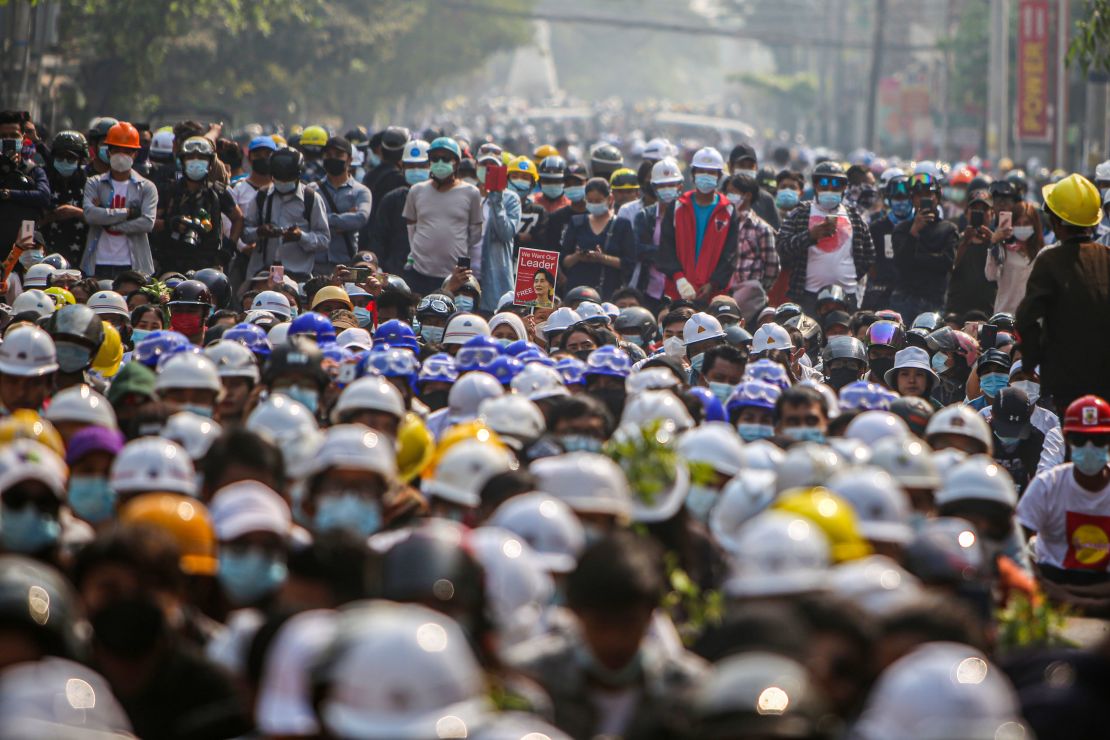
Ye Myo Hein, executive director of the Tagaung Institute of Political Studies and a fellow with the Asia Program at the Woodrow Wilson International Center for Scholars, said the resistance movement has forced the military to change how it operates.
“The military thought it could very easily crack down on the resistance movement,” Ye Myo Hein said.
“In the past, their strategy and objective was how to control the country. Now they are focused on how survive.”
What the future holds
After a year of violence,hope that the UN Security Council or other international actors will intervene in Myanmar has all but evaporated.
Khin Sander, the activist, said the international community has failed the people. “We haven’t seen any concrete action from the international community so we have to defend ourselves. It is the only way to live,” she said.
Last year, the United States, the United Kingdom and Canada imposed sanctions on Myanmar’s military leaders, but members of the resistance say it’s not enough.
Defense forces, activists, and rights groups are urging the international community to block the flow of arms and cash to the junta. They say they desperately need humanitarian corridors and no-fly zones so aid can be distributed and displaced people and civilians can find a way out.
Last week, Human Rights Watch called for sanctions to block foreign currency payments to the junta from Myanmar’s lucrative natural gas industry.
Major energy companies are already pulling out. French firm TotalEnergies and US energy giant Chevron say they are withdrawing from Myanmar because of the deteriorating situation. And last week,Australian gas producer Woodside Petroleum joined them in making exit plans.
Myanmar’s military leaders want international recognition, but so far, the UN has prevented the junta from taking a seat at the world body.
The Association of Southeast Asian Nations (ASEAN) excluded Min Aung Hlaing from attending its October summit over his failure to implement a five-point consensus that included stopping the violence and allowing dialogue.
However, Cambodian Prime Minister Hun Sen holds the ASEAN chair this year, and he’s indicated he wants to engage not isolate the junta, according to Reuters.
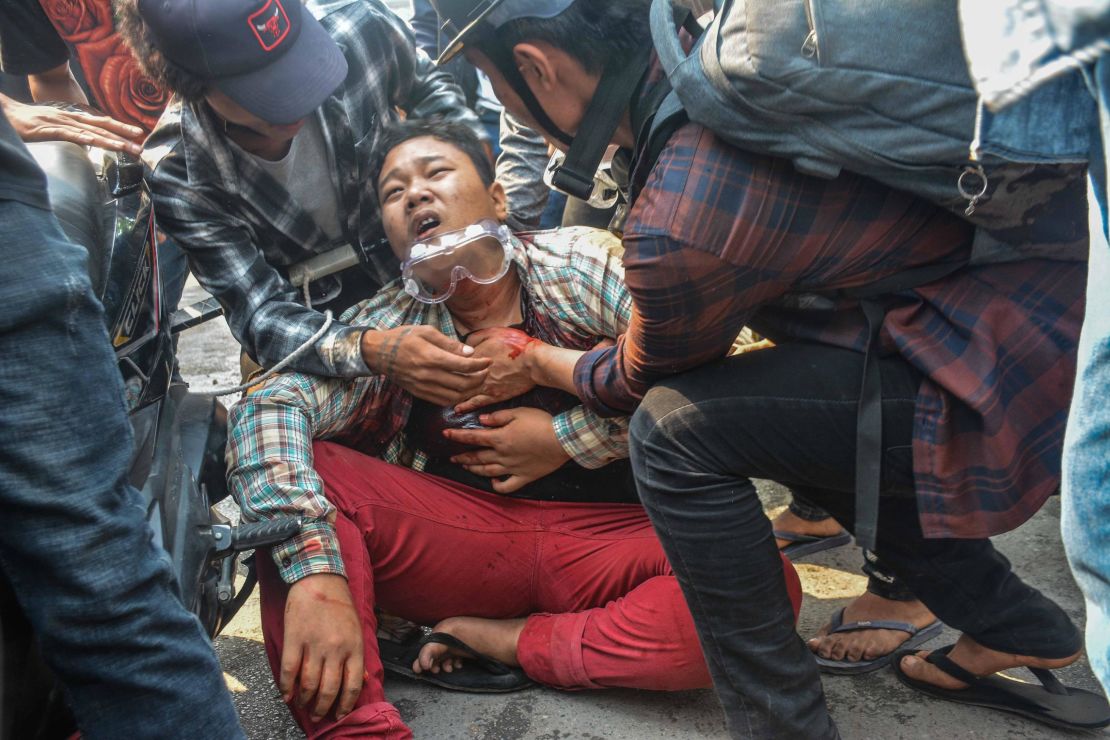
Analysts say that if international bodies fail to take action, Myanmar’s situation is likely to get worse in the year ahead.
“The international community needs to really start to do some soul searching. Do they want to cooperate, engage as business as usual with a terrorist group or not? Or do they want to put them in a different category in terms of their interactions or engagements?” Lee said.
People in Kayah state – and other bombarded districts – continue to contend with daily air strikes and clashes, threatening their lives and livelihoods.
The KNDF spokesperson said he has little hope for the year ahead.
But they, like others across Myanmar, will keep fightingin the hope of taking back their country and forming a democratic, federal state.
“We will take back step by step, slow and slowly,” he said. “We will continue, day by day. We are getting stronger. We are winning day by day.”
Salai TZ contributed reporting.
